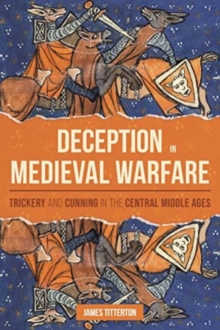
The Battle of the Golden Spurs (Courtrai, 11 July 1302) : A Contribution to the History of Flanders' War of Liberation, 1297-1305 PDF
by J.F. Verbruggen
Edited by Kelly DeVries
Part of the Warfare in History series
Description
Flemish townspeople defeat the cream of French nobility, and explode the myth of knightly invincibility for ever. Discussion of bias in sources and difficulties of interpretation preface careful account of what actually happened during the three-hour battle.
On 11 July 1302, below the town walls of Courtrai, the most splendid army of knights in Christendom, the flower of the French nobility, was utterly defeated by Flemish rebels, common workers and peasants. The French knights, products of a lifetime's training, were ably led; but so too were the Courtrai townspeople, in addition to being well-armed, and their victory, despite their lack of military skills (and golden spurs), put an end to the enduring myth of the invincibility of the knight. A French explanation of the terrible defeat was immediately given, intended to save the honour and pride of the French nobility; in Flanders the victory was glorified as a just reward for the bravery of the townsmen and the competence of their commanders. Unfortunately there were no impartial witnesses. Any account of the battle must therefore pay careful attention to the personalities of the chroniclers, their nationality, and their political and social leanings, as well as their personal sympathies. Verbruggen's study is prefaced by discussion of the problems of reconstruction and extensive consideration of the sources, showing the difficultiesfaced by medieval military historians in attempts to interpret them. He then offers his own account of the events of that dramatic day, a case study in the reconstruction of events in one of the greatest battles of the middle ages.J.F. VERBRUGGEN lectured at the Royal Military School in Brussels, and then taught in Africa, retiring as Professor of History, University of Congo, and University of Bujumbura (Burundi). He is also the author of The Art ofWarfare in Western Europe. Originally published in Dutch in 1954, translated and updated.
Information
-
Download - Immediately Available
- Format:PDF
- Pages:294 pages
- Publisher:Boydell & Brewer Ltd
- Publication Date:01/12/2001
- Category:
- ISBN:9781846150265
Information
-
Download - Immediately Available
- Format:PDF
- Pages:294 pages
- Publisher:Boydell & Brewer Ltd
- Publication Date:01/12/2001
- Category:
- ISBN:9781846150265










